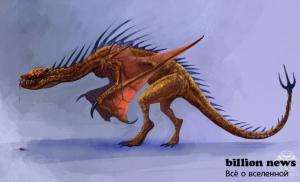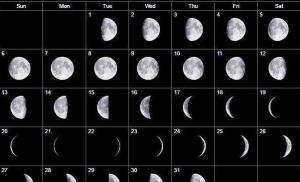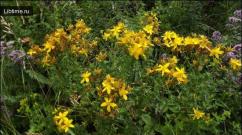The name Anastasia in different languages. Anastasia
On January 4, the Orthodox Church remembers the Holy Great Martyr Anastasia the Uzor-Resolver. Read about the history of one of the most popular female names in Russia and Saint Anastasia in our material.
The origin of the name “Anastasia” is associated with the ancient Greek language and translated means “resurrection”, “return to life”. There is also a paired male name with the same meaning, but it is not widespread in Russia.
The popularity of a female name is evidenced by Orthodox calendars. In the Russian calendar Orthodox Church we will meet 15 saints with this name, most of them (10 people) are martyrs. One Venerable Anastasia is the mother of Saint Savva of Serbia, one Alexandrian hermit, who, according to legend, lived in a monastery under the name Anastasia - a eunuch, one passion-bearer - the daughter of the last Russian Emperor Nicholas II, another nun and Saint Anastasia of Latria.
No less impressive is the list of saints with the double male name Anastasius - it includes 20 Orthodox ascetics from different countries– from Egypt to Persia, Bulgaria and Russia.
Name Anastasia on different languages
The euphonious, sonorous name has long been loved not only in Russia, but also abroad. In Britain we will meet Stacy, in Germany - Nastja, Anastasija (Anastasia), in France - Anastasi, Naste (Anastasi and Naste), in Slavic languages variations of our Anastasia. In general, “Nastya” was loved throughout Europe - from warm Greece to cold Russia. Anastasia can be found even in China or Korea.
Nastya, Nastenka and other abbreviated and diminutive forms of the name Anastasia
A rare Russian personal name can compete with Nastya in the variety of diminutive forms. Tasya, Stasya and even Asya - all these forms in modern dictionary personal names are associated with the familiar Nastenka, and there is also Anastasyushka, Anastaska, Nastasya, Nastya (Nasta), Nasya (Nasa), Nata, Naya, Nausya, Nyusya, Nastena, Tena, Nastyokha, Nastusya, Tusya, Nastyulya (Nastulya), Nastyunya (Nastunya), Nastyura, Styura, Nastyukha, Nastyusha, Nastyakha, Stasya, Tasya, Taya, Asya, Asyusha, Susha, Asyuta, Syuta. If a person needs to turn to some “Anastasia Ivanovna”, then it is worth remembering that this name has the same forms of genitive, dative and prepositional cases.
Male name Anastasy
A male name with the same ancient Greek root is not often found in Russia. Most people will only remember Anastas Mikoyan - the Soviet leader with the short form of the name "Anastasy".
Mikoyan is now most often talked about in connection with the meat processing plant of the same name. In the 30s, Anastas Ivanovich was a people's commissar food industry and created Soviet fast food. In particular, it was not without his participation that the famous “Doctor’s” sausage and the infamous “fish days” in Soviet canteens were invented.
Few people know that Anastas Mikoyan studied in 1916 at the Theological Academy located in the Etchmiadzin Monastery.
In other countries, the male name Anastasius was more common, as evidenced by four Popes and two Byzantine emperors.
Pope Anastasius IV, who lived in the 12th century, went down in Church history as the bishop of Rome with one of the shortest tenures in the cathedra of the eternal city. He was Pope for a little more than one year - from July 12, 1153 to December 3, 1154, but during this time he transferred the relics of Saint Helen Equal to the Apostles - the mother of Constantine the Great was transferred to a modest shrine, and the luxurious antique sarcophagus, where the remains of the saint had previously been kept, he prepared for myself. In this sarcophagus he was buried in the crypt of St. Peter.
But among the female celebrities there was a sea of tennis player Myskina, Dostoevsky’s heroine Nastasya Filippovna, the woman hero Nastasya Mikulishna, the daughter of the last Russian Emperor Nicholas - this is just a short list of historical figures and literary characters with the name Anastasia. Anastasia was also the daughter of Prince Yaroslav the Wise of Kyiv - the Queen of Hungary. Her image can be found on the fresco St. Sophia Cathedral in Kyiv. The fate of the queen herself was very difficult - she and her children had to flee from Hungary to Bavaria. One of her sons argued with Anastasia Yaroslavna and even raised his hand against her.
Name Nastya
In the new millennium you will rarely find a school, institute or work where there would not be a girl or girl Nastya. In 1978-1981, 31 babies out of a thousand were named Anastasia, and this name was only in 11th place. But then the rapid growth in popularity began:
In the 80s of the last century, Yuri Antonov sang “Anastasia”:
The distance of life has opened wide for me,
You appeared, more beautiful than spring.
Birds in the sky chirp: “Nastya”,
The herbs echo: “Anastasia.”
Happy am I, conquered by power
These eyes are cornflower blue.
Lips whisper tenderly: “Nastya”,
The heart echoes: “Anastasia.”
Since then, the popularity of the name has been constantly increasing.
In 2011, 53 out of a hundred newborn Muscovites were named Anastasia. Several times over the past 15 years, this name has come out on top in popularity. In 2013, she was second, losing the championship to Maria in Moscow.
Anastasia's birthday
Rarely the owners of the name can boast of such an abundance of patron saints. Nastya can celebrate name day on January 4, March 23, April 5, April 28, May 10, June 1, 5 and 9, July 4, July 17, August 10, November 11 and 12, December 17.
Saints named Anastasia
IN Orthodox calendar you can find at least fifteen saints with this name, let's try to talk a little about the most famous ascetics.
 Among the ascetics with the name Anastasia, the first place in popularity will be the patron saint of prisoners - the holy great martyr Anastasia the Pattern. Her earliest life that has come down to us was compiled in the 6th century, so we know almost nothing about the life of this saint.
Among the ascetics with the name Anastasia, the first place in popularity will be the patron saint of prisoners - the holy great martyr Anastasia the Pattern. Her earliest life that has come down to us was compiled in the 6th century, so we know almost nothing about the life of this saint.
The Great Martyr Anastasia suffered in 304 during the cruel persecution of Emperor Diocletian. This was an emperor who wanted to save the decaying Roman Empire. As the Christian writer Lactantius notes in his essay “On the Death of Persecutors,” persecution for faith was total: “All people, (without distinction) of gender and age, were driven to the stake; and there were so many of them that they were surrounded not individually, but in crowds, and were set on fire; the servants were drowned in the sea, with a millstone tied to each of their necks. . No less wild persecution affected the rest of the people, because the judges, scattered throughout all the temples, drove everyone to sacrifice... The dungeons were full, unheard-of types of torture were invented, and, no matter what case the trial was carried out, in secluded places and in front of the tribunal they were located altars, so that those involved in litigation first make sacrifices and, under such circumstances, speak out about their affairs.”
Anastasia fearlessly visited Roman prisons and helped the sufferers. After the death of her teacher, she traveled through the provinces of the Roman Empire, where persecution raged. She visited Greece and Macedonia, alleviated the suffering of prisoners - brothers in faith. She was soon captured and, as a Christian, sentenced to be burned at the stake.
The Great Martyr was widely revered in the West already in the 4th century. Her honest head was in the monastery of St. Anastasia near the Greek city of Thessaloniki, but on the night of April 22-23, 2012, unknown persons stole the relics of this ascetic.

Anastasia the Roman or the Roman
In 250 or 256 in Rome, after prolonged torture, another martyr named Anastasia was beheaded. Becoming an orphan at the age of three, the noble girl was raised in a Christian community near the eternal city. She was very beautiful, and at the age of 20, rejected suitors handed her over to the mayor Prov. He demanded that she renounce Christ and marry some patrician. Anastasia refused, the enraged persecutor ordered her to be tortured naked in front of the crowd, but the saint continued to glorify the Savior and was eventually executed. Her body was found by local Christians and buried in the outskirts of Rome.
Anastasia Rimskaya
 Apparently Rome had a special attraction for martyrs named Anastasia. After the sermon of the holy apostles Peter and Paul, one resident of the eternal city accepted the new faith. During Nero's persecution, Anastasia and her friend Vasilisa buried the bodies of dead Christians. After torture, she was beheaded as a Roman citizen in 68. (Roman citizens, as we can learn, for example, from the Acts of the Apostles, had a number of privileges: they could demand the trial of the emperor, so the Apostle Paul was taken to Rome, and he himself spent several years in prison awaiting trial. Roman citizens could not shameful executions were used (crucifixion or being eaten by wild animals in the arena), so they were executed with the sword.
Apparently Rome had a special attraction for martyrs named Anastasia. After the sermon of the holy apostles Peter and Paul, one resident of the eternal city accepted the new faith. During Nero's persecution, Anastasia and her friend Vasilisa buried the bodies of dead Christians. After torture, she was beheaded as a Roman citizen in 68. (Roman citizens, as we can learn, for example, from the Acts of the Apostles, had a number of privileges: they could demand the trial of the emperor, so the Apostle Paul was taken to Rome, and he himself spent several years in prison awaiting trial. Roman citizens could not shameful executions were used (crucifixion or being eaten by wild animals in the arena), so they were executed with the sword.
The ancient historians Suetonius and Tacitus briefly report on the reasons for Nero’s persecution of Christians. The text of the latter in Book XV of the Annals connects the persecution of followers new faith with the great fire of Rome and the emperor’s desire to shift the blame to Christians: “So Nero, in order to overcome rumors, found the guilty and put to the most sophisticated executions those who had brought upon themselves universal hatred with their abominations and whom the crowd called Christians. Christ, from whose name this name comes, was executed under Tiberius by the procurator Pontius Pilate; suppressed for a while, this harmful superstition began to break out again, and not only in Judea, where this destruction came from, but also in Rome, where everything that is most vile and shameful flocks from everywhere and where it finds adherents. So, first those who openly admitted that they belonged to this sect were captured, and then, on their instructions, a great many others were caught not so much in the villainous arson as in hatred of the human race. Their killing was accompanied by mockery, for they were dressed in the skins of wild animals so that they could be torn to death by dogs, crucified on crosses, or those doomed to death by fire were set on fire at nightfall for the sake of night illumination. Nero provided his gardens for this spectacle; At the same time, he gave a performance at the circus, during which he sat among the crowd dressed as a charioteer or drove a team, participating in a chariot race. And although the Christians were guilty and they deserved the most severe punishment, yet these cruelties aroused compassion for them, for it seemed that they were being exterminated not for the sake of public benefit, but as a result of the bloodthirstiness of Nero alone.”
The relics of the holy martyr Anastasia are in Rome.
Anastasia Romanova

The youngest daughter of the last Russian Emperor Nicholas II was born on June 18, 1901. She was the fourth child in the family and was educated at home from the age of 8. The curriculum included French, English and German languages, history, geography, God's Law, natural sciences, drawing, grammar, arithmetic, as well as dance and music.
Anastasia Nikolaevna did not like grammar, wrote with many errors, and called arithmetic “beastly.” At the same time, Anastasia had a very kind character - she loved pets, adored candies and sweets and willingly shared them with others.
Anastasia’s teachers said that the girl had an easy character. She loved to play hide and seek, lapta, and serso (a game in which you need to throw rings onto a peg). She willingly climbed trees, loved to weave flowers into her hair, and was tenderly attached to her brother Alexei, spending whole days with him during attacks of his illness.
Growing up, during the First World War in a hospital, she gave concerts for the wounded and helped her sisters and mother in their ministry as Sisters of Mercy.
Together with the rest of the royal martyrs, she was shot in the basement of the Ipatiev House on the night of July 16-17, 1918.
The legend of the rescue of Anastasia Romanova
After the execution royal family The story of the miraculous rescue of Nicholas II’s youngest children, Anastasia and Alexei, became widespread. The most famous false Anastasia was Anna Anderson, who claimed that she was saved by a soldier with the musical surname Tchaikovsky. The impostor was quickly exposed, and the final point in this matter was put to two genetic examinations carried out in 1995 and 2011
Icons of Anastasia
On the icons of saints you can often find objects associated with their feat.
Great Martyr Anastasia the Pattern Maker is depicted with a cross (symbol of martyrdom) and a bottle with medicinal oil, for whom she alleviated the suffering of prisoners.
Anastasia the Roman is often dressed in monastic robes as a symbol of chastity.
The iconography of Saint Anastasia Romanova is distinguished by some portrait similarities. The saint holds a cross in her hands as a symbol of suffering. On the most common icon of the royal martyrs, on Anastasia’s head you can see a crown or diadem as a symbol of the royal
A girl named Anastasia is, as it were, destined to be the best from childhood. She is full of tenderness, kindness, beauty and sincerity. It is not without reason that most of the main heroines of ancient Russian fairy tales are named by this name. The name has the original meaning of “relocation”. Translated, it means “rebel”, “resurrection”, “return to life”.
It consists of smooth sounds, which, however, are not devoid of some swiftness and pressure. A girl with this name will be very energetic, lively, cheerful, and will have a subtle mental attitude.
Origin of the name Anastasia:
The name that is considered truly Russian is Anastasia, after all, albeit a very long time ago, but borrowed from another language. The root word for it is the ancient Greek word “anastas” (resurrected).
Characteristics and interpretation of the name Anastasia:
Usually, little Nastya is the object of universal adoration in the family - everyone loves and pampers her. The girl is growing up dreamy, with a well-developed imagination, and loves fairy tales. The only thing that can upset her parents is her poor appetite. But this is only because Nastya is very selective in everything, and especially in food. Equally logical and well-developed creative thinking, Anastasia does not accept routine. As a child, it is very difficult to teach her to be tidy - Nastya does not even like to clean her room. And, already as an adult, Nastya will do housework only according to her mood. But despite this, she really loves comfort and luxury. She likes to decorate the room with flowers and various elegant things.
Anastasia has a well-developed intuition, thanks to which she can have the gift of clairvoyance. She feels good in a job where she needs to put in a significant amount of effort and knowledge. Nastya will easily make a career as an actress, director, writer, musician or singer. She is also suitable for professions related to teaching and psychology. She has wonderful taste and knows how to choose unique, original gifts.
A strong and courageous young man will be able to win Anastasia’s heart. He prefers to choose a man from the military profession as a husband. If Nastya does not marry at a young age, then, in the future, in the hope of finding “her prince,” she may wait until adulthood, or she will not marry at all. If a woman with this name was able to realize herself in family life, she will be a devoted and caring wife and mother. Coquetry and relationships with other men do not appeal to her.
There are two most common diminutive versions of the name Anastasia - Asya and Nastya. And, depending on what the parents call their daughter in childhood, her characteristic features. So, if they use the “Asya” option, then the girl is the most active and cheerful, in contrast to the “Nastya” option, which is more reserved and calm.
The name was very popular in Russia both among ordinary peasants and among tsars. For example, it was worn by the wife of Tsar Ivan the Terrible. She was very good friend and advisor, and when she died, her death became a huge shock for the king.
Name Anastasia in different languages:
- Name Anastasia in English: Anastacia, Anastasia (Enesteisha);
- Name Anastasia in Chinese: 阿娜斯塔西娅 (Anasytasia);
- Name Anastasia in Japanese: 篏巣他雌冶 (A-na-su-ta-si-a);
- Name Anastasia in Spanish: Anastasia (Anastasia), Tacha (Tacha);
- Name Anastasia in German: Anastasia (Anastasia), Stasi (Stasi);
- The name Anastasia in Polish: anastazja (Anastasia);
- The name Anastasia in Ukrainian: Anastasia.
Forms and variants of the name Anastasia: Nastenka, Naya, Nastyulya, Nyusya, Nastya, Nastulya, Nastyunya, Nastya, Nasta, Nasya, Styura, Nastyukha, Nastyusha, Tasya, Taya, Asya, Asyusha, Nastyakha, Nastasya, Stasya, Nastasyushka, Nasa, Nata, Nastunya, Nastyura , Anastasyushka, Anastaska, Nayusya, Tyona, Nastyokha, Susha, Asyuta, Syuta, Nastusya, Tusya.
Color of the name Anastasia: red, silver, dark green.
Flower of Anastasia: orchid, jasmine.
Anastasia's Stone: emerald, fire opal.
Nicky for the name Anastasia/Nastya: Nastezi, Anastasia, Nastena, Acq, Asya, Nastena-kotena, Tusya, Anastasia, Zaya, Bunny, Hare, Bobblehead, Stasya.We need to look for the meaning of the name Anastasia in Greece. It was from there that this name came into our Russian language. In Greek the name Anastasia (Ἀναστασία) means “returned to life”. The name itself is female uniform named Anastas. Anastas is translated as "Sunday".
Like most of the most popular names in Russia, the name Anastasia is not Slavic, but Greek. IN Kievan Rus Having accepted the faith of the Greeks (Orthodoxy), they also adopted the traditional church names of the Greeks. Anastasia, for example, was the name of the daughter of Yaroslav the Wise.
The meaning of the name Anastasia for a girl
Little Nastya is a good and obedient child. She is a kind and even trusting girl. Children who are prone to cunning and malicious jokes are easy to offend her. The girl has a well-developed imagination. She loves having bedtime stories read to her, and can also make them up herself. Thanks to her imagination, she easily comes up with activities for herself, although of course she loves when they play with her.
Of the minuses - Nastya is a rather lazy child. She loves to be a good girl and fulfills the necessary "conditions" for being "good." But you are unlikely to be able to instill in her a love of cooking or cleaning. During adolescence, this can become a certain problem, as it is expressed especially strongly.
Anastasia's health is average. As a child she had a weak appetite. This usually does not affect her health and figure. The main thing is to eat regularly, even if only a little. A more serious problem can be called frequent throat diseases. Constant pharyngitis, tonsillitis and other diseases haunt the girl and her loved ones. Preventive treatment and a good climate are the best that can be thought of in this case.
Short name Anastasia
Nastya, Nasya, Nata, Naya, Nyusya, Nastyukha, Stasya, Tasya, Taya, Asya, Asyusha, Syusha, Asyuta.
Diminutive pet names
Anastasyushka, Anastaska, Nayusya, Nastasya, Nastya, Nastyulya, Nastyunya, Nastyusha, Nastusya.
Name Anastasia in English
On english name Anastasia is spelled as - Stacy. In some ways it is similar to the shortened name Nastya.
Name Anastasia for international passport- ANASTASIIA, according to the rules of machine transliteration adopted in Russia in 2006.
Translation of the name Anastasia into other languages
in Belarusian - Nastya, Nastassya
in Bulgarian - Anastasia
in Hungarian - Anasztázia
in Greek - Αναστασία
in Spanish - Anastasia, Tacha
in Italian - Nastia, Anastasia
in Chinese - 阿納斯塔西婭
in Korean - 아나스타샤
in Latvian - Anastasija
in Lithuanian - Anastasija
Latin spelling - Anastasia
in German - Nastja, Anastasija
in Polish - Anastazja, Nastazja
in Portuguese - Anastácia, Anastásia
in Romanian - Anastasia
in Serbian - Anastasija, Anastasia
in Slovak - Anastázia
in Ukrainian - Anastasia, Nastya
in French - Anastasi, Naste
in Finnish - Anastasia
in Czech - Anastázie, Anastazia
in Estonian - Anastasia
in Japanese - アナスタシア, ナスチャ
Church name Anastasia(V Orthodox faith) remains unchanged, since this name is in Christmastide. But this is, of course, if Nastya was not given a different name at baptism.
Characteristics of the name Anastasia
Anastasia can be described as contradictory. She is prone to rapid mood swings and slight nervousness. Anastasia has excellent intuition and at the same time excellent analytical skills. It’s hard to believe that this can be combined in one person until you meet Nastya.
Anastasia’s intuition is aimed primarily at the lives of loved ones and family. She rarely uses this talent for selfish purposes. It seems that when she has selfish thoughts, her intuition disappears.
Anastasia is a family-oriented person. Even if she came to a noisy party, her thoughts often return to home. Family for her is the most important component of life. She is easygoing at home and easily finds a common language with her husband's relatives. She usually gets married early and remains married for life. Loves men with pronounced masculinity. A faithful and caring wife.
The secret of the name Anastasia
People often take advantage of Nastya’s secret after finding out about her. Nastya is a very trusting person. Intuition developed in other directions does not help here. Anastasia is very sentimental and is easy to touch, which some people take advantage of. In general, an ideal victim for various scammers. The task of her loved ones will be to protect her from such people all her life.
Some men, seeking Nastya's favor, take advantage of her exaggerated sense of pity. Usually, after a while, the manipulation is revealed and there will be no happiness in such a family. Whenever love gives way to the desire to possess, there is no real love and never will be.
Planet- Pluto.
Zodiac sign- Scorpion.
Totem animal- Siamese cat.
Name color- Dark green.
Tree- Jasmine.
Plant- Orchid.
Stone- Malachite.
Guardian angel of the name Anastasia and his patron will depend on her date of birth. If you know your date of birth, then read the article “Patron of the name Anastasia” on our website.
What does the name Anastasia sound like in all languages of the world?
- in Armenian Anastasia (emphasis falls on the last syllable)
in African Anastasia (stress falls on the 3rd syllable)
in Welsh Anastasha (emphasis falls on the 3rd syllable)
in Vietnamese Anastasia (stress falls on the 3rd syllable)
in Dutch Anastasia (emphasis falls on the last syllable)
in Greek, also, Anastasia
in Icelandic Anastasia (emphasis falls on the first syllable)
in Spanish Anastasia (stress falls on the 3rd syllable)
in Chinese Anasyutashi (emphasis falls on the 3rd syllable)
in Creole Onastasya (emphasis falls on the 1st syllable)
in Macedonian Anastasia (emphasis falls on the 3rd syllable)
in German Anast Asia (pronounced in the same way separately)
in Portuguese Anastasia
in French Anastasia - Japanese - Resurrecting Fukatsumi
- English
and. Anastasia, Anastacia (Enesteysha), diminutives Stacia (Stacy), Stacy, Stacie, Stacey, Staci (Stacy)
German (Deutsch)
m. Anastasius (Anastasius)
and. Anastasia (Anastasia), diminutive Stasi (Stasi, Stasi)French
m. Anastase (Anastase)
and. Anastasie (Anastasi), diminutive Nasie (Nazi) Nadin (Nadine)Spanish (Espa#241;ol)
and. Anastasia (Anastasia), diminutive Tacha (Tacha)
m. Anastasio (Anastasio), diminutive Tacho (Tacho)Portuguese (Portugu#234;s)
m. Anast#225;cio (port. Anastasyu, braz. Anastasiu), diminutives Anast#225;cinho (Anashtasinho, Anastasinho), Nastacinho (Nashtasinho, Nastasinho)
and. Anast#225;cia (port. Anastasia, braz. Anastasia), diminutives Anastacinha (Anashtasinya, Anastasinya), Nastacinha (Nashtasinya, Nastasinya), Nan#225; (Nana)Italian (Italiano)
and. Anastasia (Anastasia)
m. Anastasio (Anastasio)Corsican (Corsu)
m. Nastasgiu (Nastasdzhu), Anastasiu (Anastasiu)
and. Nastasgia (Nastasja), Anastasia (Anastasia)Catalan (Catal#224;)
m. Anastasi (Anastasi, Valence. Anastasi)
and. Anast#224;sia (Anastasia, Valence. Anastasia, Mallorcan. Anastasi), diminutive T#224;sia (Tasia, Valence. Tasia, Mallorcan. Tazi)Romanian/Moldavian (Rom#226;n#259;/Moldoveneasc#259;)
and. Anastasia (Anastasia), diminutives Nasta (Nasta), Nastea (Nastya), T#259;sia (Tesia), Tasea (Tasya), Nastasica (Nastika), Sica (Sika), Nastasi#355;a (Nastitsa), Si #355;a (Sitsa)
Hungarian (Magyar)
m. Anaszt#225;z (Anastaz)
and. Anaszt#225;zia (Anastasia)Greek (Modern Greek) (#917;#955;#955;#951;#957;#953;#954;#940;)
m. #913;#957;#945;#963;#964;#940;#963;#953;#959;#962; (Anastasios) , #913;#957;#945;#963;#964;#940;#963;#951;#962; (Anastasis), diminutive and short forms #932;#940;#963;#959;#962; (Thassos) , #931;#940;#954;#951;#962; (Sakis)
and. #913;#957;#945;#963;#964;#945;#963;#943;#945; (Anastasia), diminutive and short forms #932;#945;#963;#943;#945; (Tasiya) , #932;#945;#963;#959;#973;#955;#945; (Tasula) , #931;#959;#973;#955;#945; (Sula)Ukrainian (Ukranska) Rules for pronunciation of Ukrainian names
m. Anastas, Anastasy, folk form: Nastas, diminutives Anastasik, Anastasyo, Stasko, Stasyo, Stasunyo, Stasik
and. Anastasia, folk forms: Nastasya, Nastya, diminutives Nastya, Nastasya, Nastaska, Nasta, Nastka, Nastochka, Nastechka, Nastunya, Nastunenka, Nastunechka, Nastunka, Nastusya, Nastusenka, Nastusechka, Nastuska, Nastushka, Nata, Natonka, Natochka, Natsya, Natska, Stasya, Stasenka, Stasechka, Stasunya, Stasunka, Staska, Tusya, Tusenka, Tusechka, AsyaBelarusian (Belarusian) Rules for pronunciation of Belarusian names
m. Anastas, Anastas, Nastas, Nastas, church. Anastasy, diminutives Astasi, Astash, Nastsk, Nastuk, Nastash
and. Anastasya, folk forms: Nastassya, Anastasya, Anastasya, diminutives Nasta, Nastsyukha, Nastulya, Nastasya, Nastsya, Nastysya, Naska, Nastka, StasyaPolish
m. Anastazy (Anastazy, Russian literary transcription - Anastasy), diminutive Sta#347; (Stas), Nastek (Nastek), Nastu#347; (Nastus)
and. Anastazja (Anastasia), diminutives Nastka (Nastka), Nastusia (Nastusya) - Thank you.
- names are not usually translated; there are names that come from the same root but according to the rules of a different language
Anastasia (ancient Greek Ἀναστασία) - female name, female form male name Anastasius (Anastas), translated from ancient Greek - “resurrection” (“returned to life”).
Origin of the name Anastasia. The name Anastasia is Russian, Orthodox, Catholic, Greek.
Etymology
From ancient Greek. Ἀναστασία “resurrection” (returned to life), from ἀνάστασις “rising, rising; erection", further from ἀνά "above, up, back" + στάσις "arrangement, establishment", from ἵστημι "to place, arrange; erect; stand" (from Proto-Indo-Hebrew *sta- “stand; put”).
Morphological and syntactic properties
Anastasia
Noun, animate, feminine, 1st declension (declension type 7a according to A. Zaliznyak’s classification).
Proper name.
Semantic properties
Meaning - female name ◆ Anastasia perked up through force: she promised herself not to tell her husband anything about the chicken and everything she had heard from the servants. V. I. Kostylev, “Ivan the Terrible”
Translation
Latin transliteration in a Russian passport – Anastasia
Conversational forms: Nastasia and Nastasya, colloquial: Anastasia and Nastasya.
Most common diminutive name in Russian - Nastya.
Derived forms: Anastasyushka, Anastaska, Nastasya, Nastya (Nastya), Nasya (Nasa), Nata, Naya, Nayusya, Nyusya, Nastena, Tyona, Nastya, Nastusya, Tusya, Nastyulya (Nastulya), Nastyunya (Nastunya), Nastyura, Styura, Nastyukha, Nastyusha, Nastyakha, Stasya, Tasya, Taya, Asya, Asyusha, Susha, Asyuta, Syuta.
Name day
In Orthodoxy (according to Old Style):
Anastasia has wanted children since childhood. Nastya is very trusting, kind and completely forgiving. The little girl Nastya loves fairy tales very much, she has a well-developed imagination, she can come up with both games and fun. Hard work is an integral feature of the owners of this name, but in childhood it must be persistently instilled in the girl, since she loves to dream and this constantly distracts her. Over time, it is these qualities - hard work, diligence, perseverance, brought up in childhood - that will play an important role in her life.
Anastasia is a good craftswoman - she can sew, knit, and is a good cook. Having matured, she will strive to keep her house clean; she will be strict, but fair in this regard to both her husband and children. She doesn't like to keep anything unnecessary in the house. She will either donate everything that has already become unnecessary, without regret, if it can be given, or throw it away. Nastya loves to surround her comfort with flowers, paintings, and carpets. In her house you can always find a beautiful box and an unusual trinket. But for Nastenka, all these things will be useful and serve her in the household.
Nastya is humane, she is a very sincere and sympathetic person, pity and mercy are not alien to her. Many people initiate her into their own secrets; she knows how to keep secrets. Most often, Anastasia chooses those professions where she can help people, give her warmth, take care of someone. She can become a nurse, teacher kindergarten, psychologist. Also, fantasy continues to live in adult Anastasia, which is why it happens that Nastya chooses romantic, and sometimes dangerous, professions. They can become artists, circus performers, rescuers, climbers. Anastasia is always ready to sacrifice her desires, her time for the benefit of another person.
Anastasia is a very strong-willed person, unbending and firm. She cannot be bribed or forced, she can only be convinced that she is necessary, but only if this is really so. Nastya will not run for you to pick cranberries in the swamp if you are able to do it yourself, but she will pick cranberries, and bring mushrooms, and bring water, and cook porridge for the old woman, even if she doesn’t ask for anything.
Anastasia always wants to be protected; she is dependent on the one she loves. And that is why she marries only a strong man who can support her and her family. Most often, Anastasia gets married early. Women named Nastya are caring, faithful wives and loving mothers.
Christian saints
Anastasia the Pattern Maker is a Christian great martyr of the 4th century. So named because she alleviated, or “resolved,” the suffering of Christian prisoners, including her teacher, Chrysogonus of Aquileia.
Anastasia the Roman of Thessalonica is an early Christian martyr.
Anastasia of Rome - early Christian martyr (1st century).
Anastasia Patricia of Alexandria is a Christian saint. Desert woman. According to legend, Emperor Justinian wanted to get her as his wife. To avoid marriage, she changed into men's monastic clothes, settled in a cave and lived there for twenty-eight years under the name Anastasy.
Anastasia Serbskaya - reverend, mother of the reverend. Savva Serbsky.
In the history of Russia
Anastasia Romanova (1901-1918) - princess, daughter of Nicholas II. There is a legend according to which Anastasia survived the execution of the royal family.
Anastasia Mikhailovna (1860-1922) - Grand Duchess, daughter of Grand Duke Mikhail Nikolaevich.
Anastasia Zakharyina-Yuryeva is the first wife of Tsar Ivan the Terrible. According to the chronicles, she possessed all feminine virtues and softened her husband’s harsh temperament. She was also very beautiful.
Cultural figures
Anastasia (born 1965) is a Russian singer (full name is Anastasia Vladimirovna Mintskovskaya, maiden name Protasenko).
Anastacia (Rus. Anasteisha, born 1968) is an American pop singer.
In art
Anastasia the Beautiful is a character in Russian fairy tales collected by A. N. Afanasyev. Less known than Vasilisa the Beautiful. Mentioned in Russian folk tales “Fyodor Tugarin and Anastasia the Beautiful”, “Three Kingdoms - Copper, Silver and Gold”.
Nastasya the Golden Braid is a character in the fairy tale “Three Kingdoms - Copper, Silver and Gold” (in some versions of the fairy tale she is referred to as Anastasia the Beautiful). The image, according to A. N. Afanasyev, is associated with solar myths and pre-Christian worship of the Sun.
Nastasya Filippovna is the heroine of F. M. Dostoevsky’s novel “The Idiot.”
“Anastasia” is a novel by Alexander Bushkov.
“Anastasia” is the main character of V. Megre’s books, whose name gave the name to many organizations associated with the new religious movement “Ringing Cedars of Russia”, as well as to the participants of this movement themselves - the “Anastasians” (“Anastasians”).
Anastasia is a 1997 American animated feature film.
What does the name Anastasia sound like in all languages of the world?
English
and. Anastasia, Anastacia (Enesteysha), diminutives - Stacia (Stacy), Stacy, Stacie, Stacey, Staci (Stacy)
German (Deutsch)
m. Anastasius (Anastasius)
and. Anastasia (Anastasia), diminutive - Stasi (Stasi, Stasi)
French
m. Anastase (Anastase)
and. Anastasie (Anastasi), diminutive - Nasie (Nazi) Nadin (Nadine)
Spanish
and. Anastasia (Anastasia), diminutive - Tacha (Tacha)
m. Anastasio (Anastasio), diminutive - Tacho (Tacho)
Portuguese (Português)
m. Anastácio (port. Anastasyu, braz. Anastasiu), diminutives - Anastácinho (Anashtasinho, Anastasinho), Nastacinho (Nashtasinho, Nastasinho)
and. Anastácia (port. Anastasia, braz. Anastasia), diminutives - Anastacinha (Anashtasinha, Anastasinya), Nastacinha (Nashtasinha, Nastasinya), Naná (Nana)
Italian (Italiano)
and. Anastasia (Anastasia)
m. Anastasio (Anastasio)
Corsican (Corsu)
m. Nastasgiu (Nastasdzhu), Anastasiu (Anastasiu)
and. Nastasgia (Nastasja), Anastasia (Anastasia)
Catalan (Català)
m. Anastasi (Anastasi, Valence. Anastasi)
and. Anastàsia (Anastasia, Valence. Anastasia, Mallorcan. Anastasi), diminutives - Tàsia (Tasia, Valence. Tasia, Mallorcan. Tazi)
Romanian/Moldovan (Română/Moldovenească)
and. Anastasia (Anastasia), diminutives - Nasta (Nasta), Nastea (Nastya), Tăsia (Tesia), Tasea (Tasya), Nastasica (Nastika), Sica (Sika), Nastasiţa (Nastasitsa), Siţa (Sitsa)
Hungarian (Magyar)
m. Anasztáz (Anastaz)
and. Anasztázia (Anastasia)
Greek (Modern Greek) (Ελληνικά)
m. Αναστάσιος (Anastasios), Αναστάσης (Anastasis), diminutive and short forms - Τάσος (Thassos), Σάκης (Sakis)
and. Αναστασία (Anastasia), diminutive and short forms - Τασία (Tasia), Τασούλα (Tasula), Σούλα (Sula)
Ukrainian (Українська) Rules for pronunciation of Ukrainian names
m. Anastas, Anastasiy, folk form: Nastas, diminutives - Anastasik, Anastasyo, Stasko, Stasyo, Stasunyo, Stasik
and. Anastasia, folk forms: Nastasiya, Nastya, diminutives - Nastya, Nastasya, Nastaska, Nasta, Nastka, Nastochka, Nastechka, Nastunya, Nastunenka, Nastunechka, Nastunka, Nastusya, Nastusenka, Nastusechka, Nastuska, Nastushka, Nata, Natonka, Natochka, Natsya , Natska, Stasya, Stasenka, Stasechka, Stasunya, Stasunka, Staska, Tusya, Tusenka, Tusechka, Asya
Belarusian (Belarusian) Rules for pronunciation of Belarusian names
m. Anastas, Anastas, Nastas, Nastas, church. Anastasia, diminutives - Astasi, Astash, Nastsik, Nastuk, Nastash
and. Anastasia, folk forms: Nastassya, Anastasya, Anastasya, diminutives - Nasta, Nastsyukha, Nastulya, Nastasya, Nastsya, Nastysya, Naska, Nastka, Stasya
Polish
m. Anastazy (Anastazy, Russian literary transcription - Anastasy), diminutives - Staś (Stas), Nastek (Nastek), Nastuś (Nastus)
and. Anastazja (Anastasia), diminutives - Nastka (Nastka), Nastusia (Nastusya)
Japanese
Anastasia (resurrected) - 復活美 - Fukkatsumi, There is also an option for Japanese: A - na - su - ta - si - a.
The sound of the name Anastasia Chinese - Anasytasia.
in Armenian [Anastasia] (stress falls on the last syllable)
in African [Anastasia] (emphasis falls on the 3rd syllable)
in Welsh [Anastasha] (stress on 3rd syllable)
in Vietnamese [Anastasya] (emphasis falls on the 3rd syllable)
in Dutch [Anastasya] (stress falls on the last syllable)
in Greek, also, Anastasia
in Icelandic [Anastasia] (emphasis falls on the first syllable)
in Spanish [Anastasia] (emphasis falls on the 3rd syllable)
in Chinese [Anasyutashi] (emphasis falls on the 3rd syllable)
in Creole [Onastasya] (emphasis falls on the 1st syllable)
in Macedonian [Anastasia] (emphasis falls on the 3rd syllable)
in German [Anast Asia] (pronounced separately as well)
in Portuguese [Anastasia]
in French [Anastasie]













